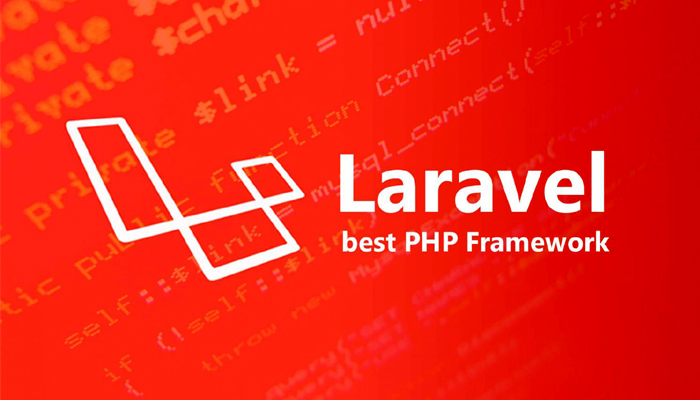
Why Laravel is So Popular:- In the realm of web development, Laravel has emerged as a popular choice for building robust, scalable, and efficient applications. With its elegant syntax, comprehensive documentation, and powerful features, Laravel has gained immense popularity among developers worldwide. In this article, we will explore the reasons behind Laravel’s popularity and understand why it has become the go-to framework for PHP developers.
What is Laravel?
Laravel is an open-source PHP framework that follows the Model-View-Controller (MVC) architectural pattern. It was created by Taylor Otwell and released in 2011. Laravel provides a clean and elegant syntax that simplifies the development process and improves developer productivity. Its rich feature set, including database migration, authentication, and caching, makes it a preferred choice for building web applications.
Key Features of Laravel
Ease of Use and Simplicity
Laravel prioritizes developer experience and offers a simple and intuitive syntax. It provides expressive and readable code, allowing developers to write clean and maintainable applications. Laravel’s elegant syntax makes it easy to understand and work with, even for developers new to the framework.
Robust and Scalable Framework
Laravel offers a robust and scalable framework that can handle projects of any size and complexity. It provides built-in support for caching, routing, and session management, ensuring efficient and seamless performance. Laravel’s modular structure allows developers to scale their applications effortlessly as their needs grow.
Comprehensive Documentation
One of the reasons behind Laravel’s popularity is its extensive documentation. The Laravel documentation is well-organized, detailed, and regularly updated. It covers all aspects of the framework, making it easier for developers to learn and implement Laravel effectively.
Powerful ORM (Object-Relational Mapping)
Laravel provides an intuitive and powerful Object-Relational Mapping (ORM) called Eloquent. It simplifies database interactions by allowing developers to work with database records as objects. Eloquent provides an expressive syntax for querying and manipulating data, reducing the need for writing complex SQL queries.
Efficient Routing System
Laravel’s routing system is highly efficient and flexible. It allows developers to define clean and SEO-friendly URLs for their applications. With Laravel’s routing system, developers can easily manage routes, handle request parameters, and implement RESTful APIs.
Blade Templating Engine
Laravel is equipped with an immensely robust templating engine known as Blade. Blade makes it easy to build reusable templates and layouts, enhancing code organization and improving development efficiency. It provides convenient features like template inheritance, sections, and conditionals, allowing developers to create dynamic and visually appealing views.
Database Migration and Seeding
Laravel simplifies the process of managing database schemas through its migration feature. With migrations, developers can version control their database structure and apply changes easily. Laravel’s database seeding feature allows developers to populate their databases with test data, making it ideal for automated testing and development environments.
Built-in Authentication and Authorization
Laravel provides a built-in authentication and authorization system that makes user management a breeze. Developers can quickly implement user registration, login, and password reset functionalities with just a few lines of code. Laravel’s authorization features enable developers to control user access to different parts of the application effortlessly.
Community Support and Ecosystem
Laravel boasts a thriving community of developers who actively contribute to its growth and development. The Laravel ecosystem offers a wide range of third-party packages and libraries that extend the framework’s functionality. Community support ensures that developers can find solutions, tutorials, and resources readily available, making it easier to overcome challenges and learn from others.
Laravel’s Impact on Web Development
Laravel has revolutionized the PHP web development landscape. Its elegant syntax, powerful features, and developer-friendly environment have made it a preferred choice for building modern web applications. Laravel’s impact can be seen in its extensive adoption by developers and the numerous successful projects built on the framework.
Laravel vs. Other PHP Frameworks
While there are other PHP frameworks available, Laravel stands out with its exceptional features and developer experience. Laravel’s simplicity, powerful ORM, and comprehensive documentation give it an edge over other frameworks. It’s active community and vibrant ecosystem further enhance its appeal, making Laravel the preferred choice for many developers.
Conclusion
Laravel’s popularity can be attributed to its ease of use, robust features, and comprehensive documentation. The framework’s emphasis on simplicity and developer productivity has made it a favorite among PHP developers worldwide. With its powerful ORM, efficient routing system, and Blade templating engine, Laravel simplifies web development and enables the creation of scalable and maintainable applications.
FAQs
Q1: Is Laravel suitable for large-scale applications?
A1: Yes, Laravel’s robust and scalable framework makes it suitable for building large-scale applications.
Q2: Can I migrate my existing PHP application to Laravel?
A2: Yes, Laravel provides tools and utilities to migrate existing PHP applications to the Laravel framework.
Q3: Does Laravel support caching?
A3: Yes, Laravel offers built-in caching mechanisms to improve application performance.
Q4: Can I use Laravel for RESTful API development?
A4: Absolutely! Laravel’s routing system and support for API development make it an excellent choice for building RESTful APIs.
Q5: Is Laravel suitable for beginners?
A5: Yes, Laravel’s intuitive syntax, comprehensive documentation, and active community support make it beginner-friendly.